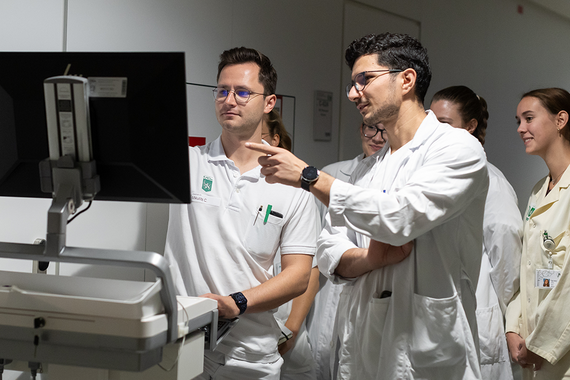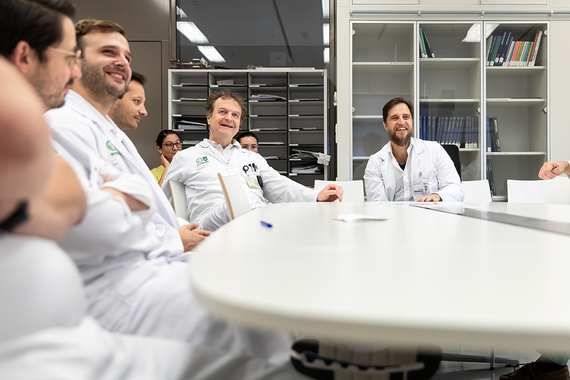-
The University
- Welcome
- Who we are
- Media & PR
- Studying
-
Research
- Profile
- Infrastructure
- Cooperations
- Services
-
Career
- Med Uni Graz as an Employer
- Educational Opportunities
- Work Environment
- Job openings
-
Diagnostics
- Patients
- Referring physicians
-
Health Topics
- Health Infrastructure
For patients
Our department is informed by the latest scientific findings, which are adapted to the specific situation and individual needs and incorporated into our treatments. We are especially concerned with adherence to the recommendations of international guidelines—not least because we are actively integrated into their development through our collaborations with professional societies and various guideline committees.
In the course of our research, we make it possible for our patients to participate in international trials with promising and innovative therapeutic approaches.

Inpatient treatment
58 beds are available for inpatient treatment of over 4,000 people annually. In addition, interventions are also conducted in the day clinic of University Hospital Graz and in the separate day hospital at our Fürstenfeld location. Our emergency, general and special clinics treat more than 22,000 patients every year, which enables our students to obtain a comprehensive overview of the different subspecialties of urology in a short space of time.

Interdisciplinarity and modern technology
We treat urological stone diseases, urinary tract infections, dysfunctions of the emptying and storage function of the bladder, male fertility and sexual disorders and above all urologic cancers of the kidney, bladder, prostate, testicles and penis.
The most accurate diagnosis is guaranteed by state-of-the-art methods such as photodynamic diagnosis (PDD) or UroNav–a fusion software for guided biopsy when prostate cancer is suspected.
Surgical treatments encompass lithotripsy to break up stones as well as all endoscopic, minimally invasive and open surgical methods. Additional or exclusively drug or radiation treatments are provided in close coordination with the Department of Therapeutic Radiology and Oncology and the Division of Oncology.
(Kopie 1)
The uniqueness and the added value of our department are the result of the symbiosis between patient care, research and education. The department is jointly operated by the Medical University of Graz and the Styrian Hospital Association (KAGes). This interdisciplinary cooperation between both providers at the University Hospital Graz site is also reflected on our website. More information on patient care can be found at the University Hospital Graz website.


